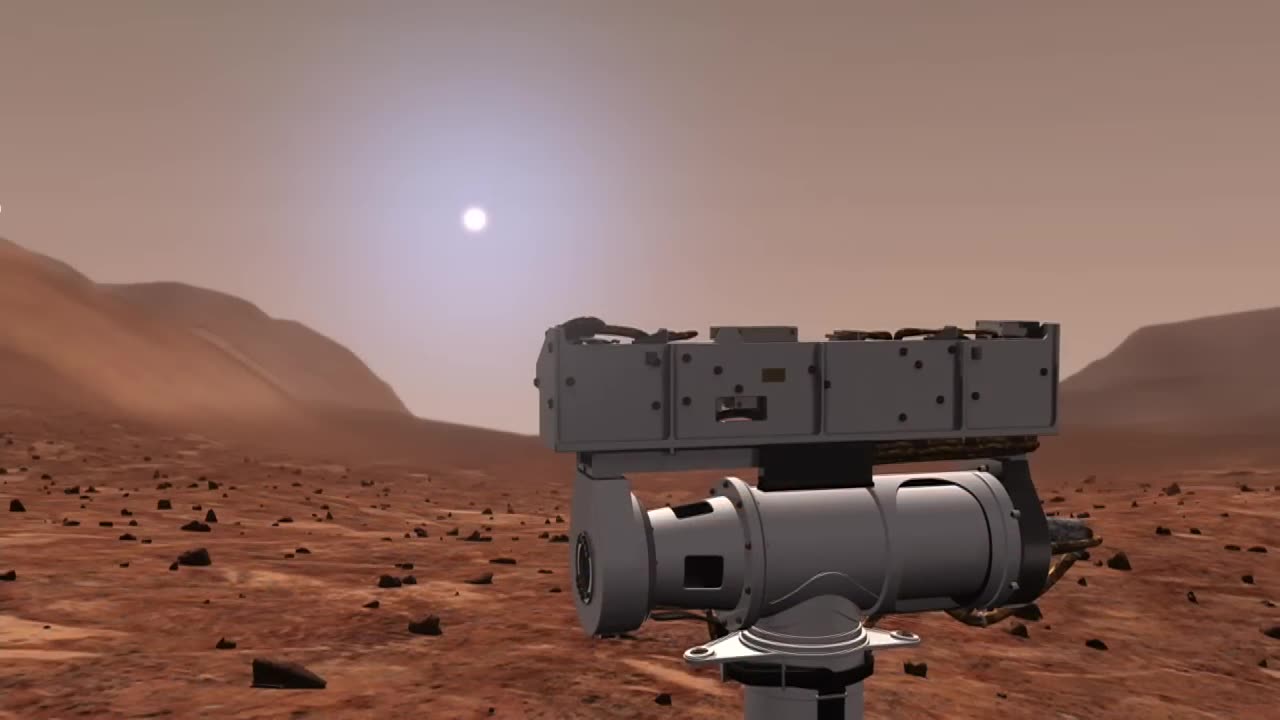Premium Only Content

Mars Exploration Rover 2003 (HD)/1080
The Mars Exploration Rovers (MER) were a pair of robotic rovers sent to Mars by NASA as part of the agency's Mars Exploration Program. The MER mission included two rovers, named Spirit and Opportunity, and they were launched in 2003 with the primary goal of exploring the Martian surface, studying its geology, and searching for signs of past water activity, which could provide evidence for the planet's past habitability.
Here's some key information about the Mars Exploration Rovers:
Spirit and Opportunity: Spirit and Opportunity were identical twin rovers, each equipped with a suite of scientific instruments to perform various tasks, including capturing images, analyzing rock and soil samples, and conducting geological surveys.
Launch and Landing: Spirit was launched on June 10, 2003, and Opportunity was launched on July 7, 2003. Both rovers landed on Mars in January 2004. Spirit landed in Gusev Crater, and Opportunity landed in Meridiani Planum.
Mission Duration: The original mission duration for both rovers was 90 Martian days (sols), but they far exceeded their expected lifetimes. Spirit operated for over 6 years, ceasing communication with Earth in March 2010, while Opportunity operated for nearly 15 years, finally succumbing to a massive dust storm in June 2018.
Scientific Discoveries: The MER rovers made numerous significant scientific discoveries during their missions. They found evidence of past water activity, including sedimentary rocks and mineral deposits that suggested the presence of ancient lakes or bodies of water on Mars. They also observed and studied Martian dust storms, analyzed meteorites on the surface, and provided valuable data on the planet's geology.
Communications and Mobility: The rovers were designed to be solar-powered and were equipped with six wheels each, allowing them to traverse the Martian terrain. They communicated with Earth through the Mars Odyssey and Mars Reconnaissance Orbiter satellites.
Spirit's Legacy: Although Spirit's mission officially ended in 2010, the rover left a lasting legacy. Its exploration of Gusev Crater provided valuable insights into the planet's geological history and contributed to our understanding of Mars' past climate and potential habitability.
Opportunity's Legacy: Opportunity's long and productive mission greatly expanded our knowledge of Mars. It discovered definitive evidence of ancient liquid water on the Martian surface and found intriguing geological features like "blueberries" (small spherical hematite concretions). Opportunity's last transmission, "My battery is low and it's getting dark," became widely known and evoked emotional responses from people around the world.
The Mars Exploration Rovers were groundbreaking missions that significantly advanced our understanding of Mars and its potential for past habitability. They paved the way for future Mars missions, such as the Curiosity rover and the Perseverance rover, both of which are part of NASA's ongoing efforts to explore the Red Planet.
-
 1:01:25
1:01:25
Rob Braxman Tech
13 hours agoBusy Week in the AI World! What this Means for You!
47.1K19 -
 1:02:53
1:02:53
The Charlie Kirk Show
7 hours agoTHOUGHTCRIME Ep. 71 — Airline DEI Again! Fed Redditors? Gayest Movie Ever?
93K54 -
 1:57:34
1:57:34
Kim Iversen
11 hours agoRFK Jr., Tulsi, Kash Patel SHRED Senate Clowns—Democrats Humiliated!
123K163 -
 3:06:08
3:06:08
Laura Loomer
7 hours agoEP 97: Trump's Nominees Transform America
61.1K37 -
 1:03:00
1:03:00
Man in America
15 hours agoThe Helicopter Crash DOESN'T MAKE SENSE... What REALLY Happened???
52.5K74 -
 55:11
55:11
Flyover Conservatives
1 day agoParents WIN, Teachers Unions PANIC! 3 Huge Education Bombshells This Week! - Corey DeAngelis | FOC Show
73.3K5 -
 1:40:20
1:40:20
Glenn Greenwald
11 hours agoTulsi's Hearing Exposes Bipartisan Rot of DC Swamp | SYSTEM UPDATE #400
122K208 -
 1:19:48
1:19:48
Simply Bitcoin
16 hours ago $16.26 earnedJerome Powells MASSIVE Bitcoin Backflip! | EP 1172
89.8K6 -
 58:42
58:42
The StoneZONE with Roger Stone
8 hours agoLBJ + CIA + Mob + Texas Oil = JFK Murder | The StoneZONE w/ Roger Stone
68.6K27 -
 58:00
58:00
Donald Trump Jr.
15 hours agoBreaking News on Deadly Plane Crash, Plus Hearing on the Hill, Live with Rep Cory Mills & Sen Marsha Blackburn | TRIGGERED Ep.212
199K162